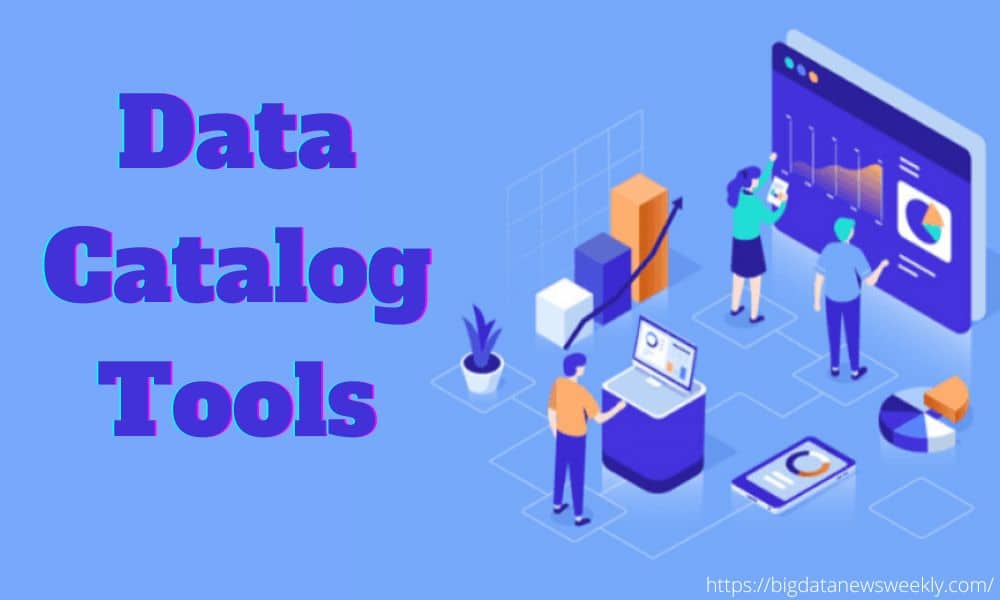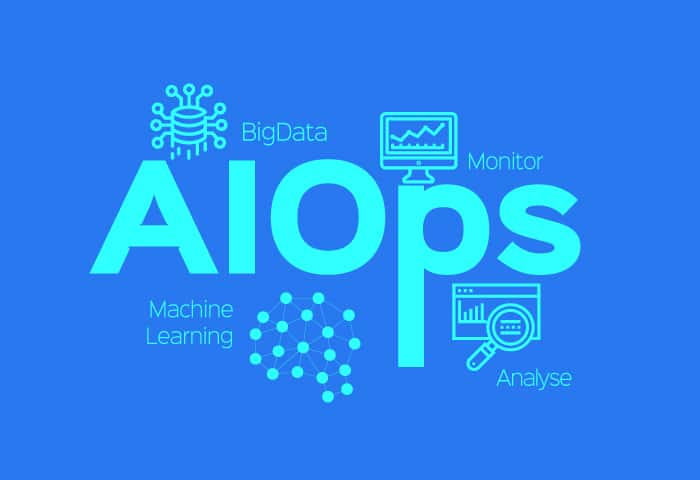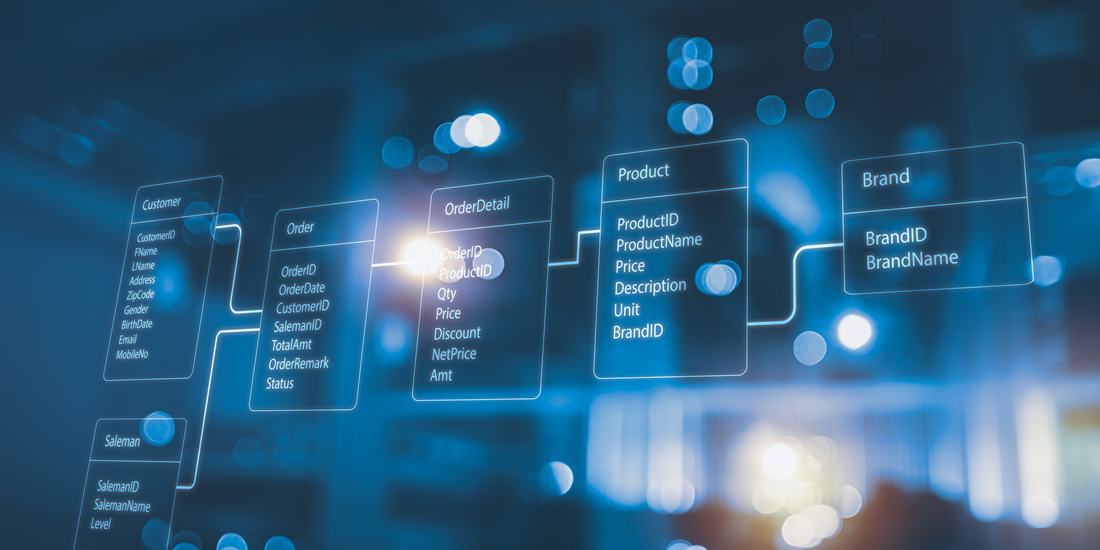As organizations continue to generate vast amounts of data, the need for efficient management, governance, and accessibility grows. Enterprise Data Catalog (EDC) tools have become essential for data-driven organizations to discover, organize, and leverage data assets. These tools serve as centralized repositories that help catalog data across various sources, making it easier for businesses to find, understand, and utilize their data.
What is a data catalog?
A data catalog is a centralized inventory of an organization’s data assets that enables users to easily discover, understand, and access data for analysis, reporting, and decision-making. It organizes metadata (information about the data) and provides features like search, tagging, and data lineage tracking to help users find relevant datasets, understand their context, and ensure proper data governance. Data catalogs are essential for managing data across large organizations, promoting collaboration, and enhancing data-driven decision-making.
What is an AI data catalog?
An AI data catalog is a centralized repository that uses artificial intelligence (AI) and machine learning (ML) to automate the discovery, organization, and management of data assets across an organization. It helps users easily find, access, and understand their data, enabling more efficient data usage and governance. The AI-enhanced features help to classify, tag, and index data automatically, improving searchability and providing recommendations on data usage patterns, metadata enrichment, and lineage tracking. This tool is crucial for maintaining an up-to-date, scalable view of enterprise data.
Below, we explore some of the top enterprise data catalog tools available today.
1. Alation Data Catalog
Alation is a leading data catalog platform that combines machine learning, human insight, and automation to improve data discovery, governance, and collaboration. Alation’s powerful search capabilities make it easy for users to find relevant data, while its robust data governance features ensure that data is accurate, secure, and compliant.
Key Features:
- Intelligent data search powered by AI
- Data governance and compliance tools
- Data stewardship and collaboration
- Automated data lineage and impact analysis
2. Alteryx Connect
Alteryx Connect is a comprehensive data catalog solution designed for data analysts and business users. It helps organizations find, understand, and trust data assets, offering insights into data lineage and enabling better decision-making.
Key Features:
- Data discovery and collaboration
- Data lineage and metadata management
- Integration with Alteryx Designer and other analytics tools
- Simplified sharing of data insights
3. Ataccama
Ataccama combines data cataloging with data quality and master data management capabilities to offer a unified platform for data governance. It uses AI and machine learning to automatically classify and tag data, making it easier to manage and utilize.
Key Features:
- Integrated data governance and quality management
- Machine learning-powered data classification
- Real-time data cataloging and profiling
- Flexible deployment options (cloud, on-premises, hybrid)
4. Atlan
Atlan is a modern data catalog that emphasizes collaboration and automation. Designed with data teams in mind, Atlan provides a user-friendly interface, allowing data engineers, analysts, and business users to collaborate seamlessly across the organization.
Key Features:
- AI-powered metadata management
- Automated data lineage and impact analysis
- Integrations with popular BI tools and data platforms
- Enhanced data collaboration with tags, comments, and notifications
5. Castor
Castor is a lightweight, user-friendly data catalog that emphasizes data discovery and democratization. It helps teams understand and use data effectively by automatically collecting metadata from various sources and allowing users to document and share knowledge.
Key Features:
- Automated data discovery and documentation
- Searchable data catalog with data lineage
- Collaboration features like tagging and commenting
- Seamless integration with cloud and on-premises data sources
6. Coginiti
Coginiti (formerly known as SQLgate) offers a collaborative data workspace for data professionals. It combines data cataloging, collaboration, and data visualization capabilities to support enterprise data management.
Key Features:
- Collaborative SQL development environment
- Data cataloging with metadata management
- Integration with popular databases and BI tools
- Query optimization and analysis tools
7. Collibra
Collibra is an enterprise data governance platform with a powerful data catalog component. Collibra helps organizations ensure data compliance, governance, and accessibility through its intuitive interface and comprehensive set of data management features.
Key Features:
- Centralized data governance and compliance management
- Automated data lineage and impact analysis
- AI-powered data discovery
- Integration with cloud, on-premises, and hybrid environments
8. data.world
data.world is a cloud-based data catalog and collaboration platform that makes it easy to discover, govern, and share data across an organization. It focuses on making data collaboration as frictionless as possible by integrating with other data tools.
Key Features:
- Collaborative data catalog with built-in governance
- Advanced data lineage and metadata management
- Integration with BI, data science, and ETL tools
- Cloud-native architecture with scalability
9. erwin Data Catalog
erwin by Quest offers a robust data catalog that simplifies data discovery, governance, and analysis. It enables businesses to harness metadata to understand their data ecosystem and make informed decisions.
Key Features:
- Comprehensive data lineage tracking
- Automated metadata harvesting and mapping
- Integration with erwin’s data governance and modeling tools
- Data profiling and quality analysis
10. Informatica Enterprise Data Catalog (EDC)
Informatica EDC is a scalable data catalog that leverages AI and machine learning to automate data discovery and classification. It provides a rich metadata repository that helps organizations understand their data assets and ensure compliance with data governance standards.
Key Features:
- AI-powered metadata management
- Data lineage and impact analysis
- Data governance and quality management
- Integration with cloud and on-premises environments
11. Metaphor
Metaphor is a modern data catalog designed for the needs of data teams. It offers an easy-to-use interface and powerful search capabilities to help users find and understand data across different sources.
Key Features:
- Automated metadata collection
- Data lineage tracking and analysis
- Collaboration features for data teams
- Integration with popular data tools
12. Secoda
Secoda is a data catalog built for modern data teams, helping them discover, organize, and share data insights easily. Secoda’s automation capabilities streamline data documentation and management processes.
Key Features:
- AI-powered data discovery and classification
- Real-time metadata synchronization
- Automated data lineage and governance
- Collaboration tools for data teams
13. Select Star
Select Star is an AI-powered data catalog that offers automatic data lineage, metadata discovery, and documentation. It is designed to simplify data governance and improve accessibility for data users across an organization.
Key Features:
- Automated metadata discovery and lineage tracking
- Collaboration tools for data teams
- Data quality and compliance features
- Seamless integration with modern data stacks
14. Stemma
Stemma is an enterprise data catalog that is purpose-built for organizations looking to manage data across large, complex ecosystems. It offers rich metadata management and advanced data governance features to ensure data is accurate, secure, and easily accessible.
Key Features:
- AI-powered metadata management and discovery
- Automated data lineage tracking
- Data governance and compliance tools
- Scalable cloud-native architecture
15. Talend Data Catalog
Talend Data Catalog is a comprehensive solution that helps organizations discover, organize, and govern their data assets. With robust metadata management and data lineage capabilities, Talend enables businesses to streamline data management processes and improve data accessibility.
Key Features:
- AI-driven metadata discovery and classification
- Data lineage and impact analysis
- Data governance and quality management
- Integration with Talend’s data integration platform
16. Zeenea
Zeenea is a modern data catalog designed to simplify data governance and accessibility for organizations. With advanced automation capabilities, Zeenea allows users to discover, catalog, and govern data more efficiently.
Key Features:
- Automated metadata collection and classification
- Real-time data lineage tracking
- Collaboration tools for data teams
- Integration with cloud and on-premises data environments
17. Amundsen
Amundsen is an open-source data discovery and metadata engine built by Lyft. It helps users find and understand data, increasing productivity across teams by making data discovery fast and intuitive.
Key Features:
- Searchable metadata across datasets, tables, dashboards, and users
- Data lineage visualization
- Integrates with Apache Atlas, Neo4j, and Elasticsearch
- Open-source with active community support
18. Atlas
Apache Atlas is an open-source metadata management and governance tool. Developed under the Apache Hadoop project, it’s designed for managing metadata and ensuring governance in Hadoop-based data lakes.
Key Features:
- Centralized governance with detailed metadata management
- Data lineage, classification, and data security
- Integration with popular tools like Apache Hive, Kafka, and Spark
- Supports policy management and compliance
19. DataHub
DataHub is an open-source metadata platform built to handle modern data ecosystems. Initially developed at LinkedIn, DataHub helps organizations manage data quality, discoverability, and governance with real-time metadata integration.
Key Features:
- Real-time metadata integration from multiple sources
- Data lineage and impact analysis
- Metadata versioning and rollback
- Collaboration features for data teams
20. Marquez
Marquez is an open-source metadata service for data lineage. It enables businesses to collect and analyze metadata on datasets and jobs, making it easier to track how data flows through various systems.
Key Features:
- Real-time metadata collection and data lineage
- Data validation and auditing
- Integration with data processing tools like Apache Airflow and dbt
- Open-source with active community contributions
21. OpenDataDiscovery
OpenDataDiscovery (ODD) is an open-source tool that aims to solve data discovery challenges across an organization. It centralizes metadata from various sources, making it easier to understand and manage data assets.
Key Features:
- Automated data discovery and cataloging
- Data lineage and metadata versioning
- Centralized metadata repository
- Integrations with data tools like Airflow, dbt, and Kubernetes
22. OpenMetadata
OpenMetadata is an open-source metadata management platform that provides a scalable and flexible data catalog. It offers a centralized place for data teams to search, understand, and govern data.
Key Features:
- Automatic data lineage tracking and metadata ingestion
- Data governance and collaboration features
- API-driven and highly customizable for modern data stacks
- Integration with BI tools, data lakes, and cloud services
23. Aggua
Aggua is a data catalog that focuses on simplifying data governance by making it easy to map and manage data in hybrid and multi-cloud environments. It enables users to automatically organize their data into business-friendly categories.
Key Features:
- Automated classification of data assets
- Easy data search and discovery
- Cloud and on-premises compatibility
- Data governance and privacy controls
24. Boomi Data Catalog
Boomi’s Data Catalog and Preparation (DCP) tool is part of its integration platform, helping organizations quickly discover, organize, and prepare data for use across systems.
Key Features:
- Automated data discovery and cataloging
- Data lineage and transformation capabilities
- Integration with Boomi’s broader data integration tools
- Data preparation features for analytics
25. Cloudera Data Catalog
Cloudera Data Catalog is part of the Cloudera Data Platform, designed for managing and cataloging data across hybrid and multi-cloud environments. It provides deep integration with data lakes and cloud services for scalable data governance.
Key Features:
- Centralized cataloging of data assets in hybrid cloud environments
- Automated metadata collection and data lineage tracking
- Secure data governance for compliance and auditing
- Supports multi-cloud and on-premises deployment
26. Glue Data Catalog
Amazon Glue Data Catalog is part of AWS Glue, an ETL (Extract, Transform, Load) service. The Glue Data Catalog acts as a metadata repository, helping users discover, organize, and understand their data across AWS services.
Key Features:
- Centralized metadata repository for AWS data assets
- Automatic schema detection and data classification
- Integration with Amazon Redshift, Athena, and other AWS services
- Support for serverless ETL jobs
27. Lumada Data Catalog (Hitachi)
Hitachi’s Lumada Data Catalog is a comprehensive platform for cataloging and governing enterprise data. It helps organizations manage large volumes of data, ensuring secure access and compliance.
Key Features:
- AI-driven metadata management and data discovery
- Data lineage tracking and governance tools
- Scalable data management across cloud and on-premises environments
- Integration with Hitachi’s broader Lumada platform
28. Magda Data Catalog
Magda is an open-source data catalog system designed for use in data.gov-style applications. It offers a modular architecture that supports various data sources and metadata formats, making it easy to scale.
Key Features:
- Automated metadata collection and enrichment
- Centralized catalog for data discovery and collaboration
- Scalable and customizable architecture
- Open-source with flexible deployment options
29. Metacat (Netflix)
Metacat is Netflix’s internal metadata management tool, designed to manage and catalog metadata across a large number of data sources. It supports integration with cloud services and various data platforms.
Key Features:
- Automated metadata management and discovery
- Customizable metadata management workflows
- Support for diverse data sources (S3, Hive, etc.)
- Internal tool designed for large-scale data management
30. Octopai
Octopai is an automated metadata management tool that provides end-to-end data lineage, impact analysis, and cataloging. It helps organizations track data from its origin through transformation, ensuring transparency and accuracy.
Key Features:
- Automated data lineage and metadata management
- Impact analysis for BI and ETL processes
- Cross-system visibility into data transformations
- Collaboration features for data teams
31. Oracle Data Catalog
Oracle Data Catalog is part of the Oracle Cloud Infrastructure, offering a fully managed service to discover, govern, and catalog data assets across Oracle environments.
Key Features:
- Centralized cataloging for Oracle data assets
- Automatic data lineage and metadata extraction
- Integration with Oracle analytics and data management tools
- Data governance and compliance management
32. OvalEdge Data Catalog
OvalEdge is a data governance and catalog tool designed to help organizations organize their data assets and ensure compliance. It offers data discovery, lineage tracking, and collaborative features for teams.
Key Features:
- Data discovery and governance tools
- Automated data lineage and metadata management
- Data quality management and collaboration features
- Integration with data lakes, databases, and BI tools
33. Redgate Data Catalog
Redgate’s Data Catalog focuses on helping organizations discover and govern sensitive data. It’s particularly useful for businesses working with large volumes of SQL databases, providing compliance and data privacy features.
Key Features:
- Sensitive data discovery and classification
- Data lineage tracking for SQL databases
- Integration with Redgate’s broader SQL Server toolset
- Data governance and privacy controls for compliance
34. Trudat Data Catalog
Trudat offers a data catalog solution aimed at providing visibility into data usage and management. It focuses on delivering a streamlined experience for data discovery, governance, and collaboration.
Key Features:
- Data discovery and collaboration
- Automated metadata management and lineage tracking
- Governance tools for compliance and auditing
- Integration with data lakes and cloud environments
Conclusion
Enterprise data catalog tools are critical for managing and utilizing vast amounts of data efficiently. Whether you’re looking for advanced governance features, automation capabilities, or seamless integrations, the right tool can make a significant difference in how you handle your organization’s data. Tools like Alation, Collibra, and Informatica EDC are leading the way in enterprise data catalog solutions, but there are many excellent alternatives depending on your specific needs and goals. Choosing the right tool will help you optimize data management, ensure compliance, and empower your teams to make data-driven decisions more effectively.
FAQs:
What are data catalog tools?
Data catalog tools are systems or platforms used to organize, manage, and index metadata about an organization’s data assets. These tools help users discover, understand, and trust the data by providing features like data lineage, classification, and collaboration across different data environments.
What are the different types of data catalogs?
There are two main types of data catalogs:
- Traditional Data Catalogs: Focus on indexing and organizing metadata from relational databases, on-premises data warehouses, and legacy systems.
- Modern Data Catalogs: Support cloud-based environments, integrate with various data sources (e.g., databases, lakes, BI tools), and often offer AI-driven insights, automation, and governance.
What is a modern data catalog?
A modern data catalog is a dynamic platform designed to handle complex, hybrid, or multi-cloud data ecosystems. It provides features such as automated metadata discovery, data lineage, governance, and collaboration, often using machine learning to enhance data searchability and trustworthiness.
How do data catalog tools improve data governance?
Data catalog tools improve data governance by providing a centralized place to manage metadata, track data usage, enforce compliance, and ensure data quality. They allow organizations to monitor who is using the data, how it’s being accessed, and whether it’s compliant with regulatory standards.
Why are data catalog tools essential for enterprises?
Data catalog tools are essential for enterprises because they enhance data visibility, enable self-service analytics, improve collaboration, and ensure data is trusted and governed. This makes it easier for businesses to derive insights, maintain data quality, and ensure compliance with data privacy regulations.





